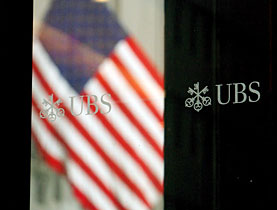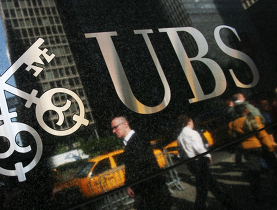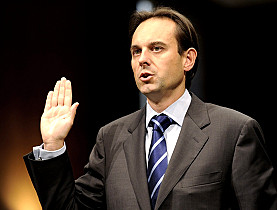UBS faces securities fraud lawsuit

New York's attorney general is suing UBS for allegedly misrepresenting investment opportunities, adding to the Swiss bank's run of legal woes in the United States.
The bank said in a statement that it would “vigorously defend” itself against the charges.
Andrew Cuomo announced on Thursday that he had filed a civil lawsuit against the bank for misleading investors about the potential risks of the auction-rate securities – corporate or municipal bonds with variable interest rates.
The lawsuit contends UBS continued to fraudulently promote tens of billions of dollars of securities despite knowing they were potentially very risky.
A similar lawsuit for securities fraud was launched in the state of Massachusetts in June seeking to force UBS to return all investor funds and pay a fine. And regulators in Texas have threatened to withdraw the bank’s licence to trade securities unless it pays customers back for allegedly mis-sold products.
The bank is also in the midst of a probe by the US tax authorities after a former employee admitted aiding tax evasion and it came under attack in a Senate subcommittee this week for allegedly helping wealthy Americans evade tax.
Market collapse
Cuomo’s lawsuit accuses several senior UBS executives of wrongdoing, saying emails show how they got rid of personal holdings while still selling the securities to customers.
State investigators said they had identified seven UBS executives who sold $21 million (SFr21.7 million) of their personal stakes in the market in the three months leading up to its collapse. The lawsuit withheld the employees’ names.
UBS said it was considering disciplinary action against some of its officials.
About 50,000 bank customers, of which 7,000 were from New York, have been stuck holding $37 billion worth of the securities, unable to sell them since the market collapsed in February.
The lawsuit calls for the bank to make the assets liquid again.
“People want and need their money back,” Cuomo said.
The short-term investments have their interest rates set at periodic auctions, depending on the submitted bids. Auction-rate securities were once considered safe, and were purchased by investors who wanted a place to put their money where it could be easily accessed.
The investments, promoted as being as liquid as cash, have been nearly impossible to liquidate since brokers stopped supporting the market in January following the recent credit crises.
Series of cases
Cuomo’s lawsuit, filed in the state court in Manhattan, is expected to be the first in a series of cases to arise from the state’s investigation into Wall Street’s handling of the $330 billion auction-rate securities market.
“It is frustrating that the New York attorney general has filed this complaint while we have been fully engaged in good faith negotiations with his office to bring liquidity to our clients holding auction-rate securities,” UBS said in a statement.
UBS Securities LLC and UBS Financial Services are named as defendants in the New York lawsuit. Both are units of UBS.
Cuomo’s office has subpoenaed records from other financial institutions, but says UBS is a “major player”.
“UBS is not alone in this scheme. We are looking at a number of other banks,” he told a news conference on Thursday.
swissinfo with agencies
UBS is also the subject of two tax evasion investigations by US authorities.
In one, former UBS employee Bradley Birkenfeld, a Liechtenstein national Mario Staggl and other “known and unknown” individuals were indicted for assisting tax evasion. In May Birkenfeld provided prosecutors with details of his actions and said UBS had “incentivised” him to help clients evade tax.
The Internal Revenue Service (IRS) and the Department of Justice have launched a separate investigation into UBS operations. A US federal judge ruled this month that the IRS could serve legal papers to the bank in a probe of US taxpayers who may have used overseas accounts to hide assets and avoid taxes.
Senate investigators had accused UBS and a Liechtenstein bank of using the “cloak of banking secrecy laws” to help US citizens evade billions of dollars of tax.
Testifying before a congressional hearing in July, UBS said it was working with the government to identify clients who may have engaged in tax fraud. The bank also said it would no longer provide offshore banking and securities services to US residents through its branches in Switzerland.
UBS endured a tough 2007 and has spent the first half of 2008 in no better shape as a result of the United States subprime mortgage crisis.
Between October 2007 and April 2008, UBS announced 1,500 job cuts and wrote off SFr39 billion on subprime losses. By December the bank opted for a SFr13 billion funding plan from Singapore and Middle East investors and in April of this year UBS sought to raise another SFr15 billion through a rights issue.
In May 2008, the bank announced a further 5,500 job cuts as it posted first quarter losses of SFr11.5 billion. In July, UBS said it would benefit from a SFr3 billion tax credit that would enable it to post a small loss in the second quarter.

In compliance with the JTI standards
More: SWI swissinfo.ch certified by the Journalism Trust Initiative


You can find an overview of ongoing debates with our journalists here. Please join us!
If you want to start a conversation about a topic raised in this article or want to report factual errors, email us at english@swissinfo.ch.